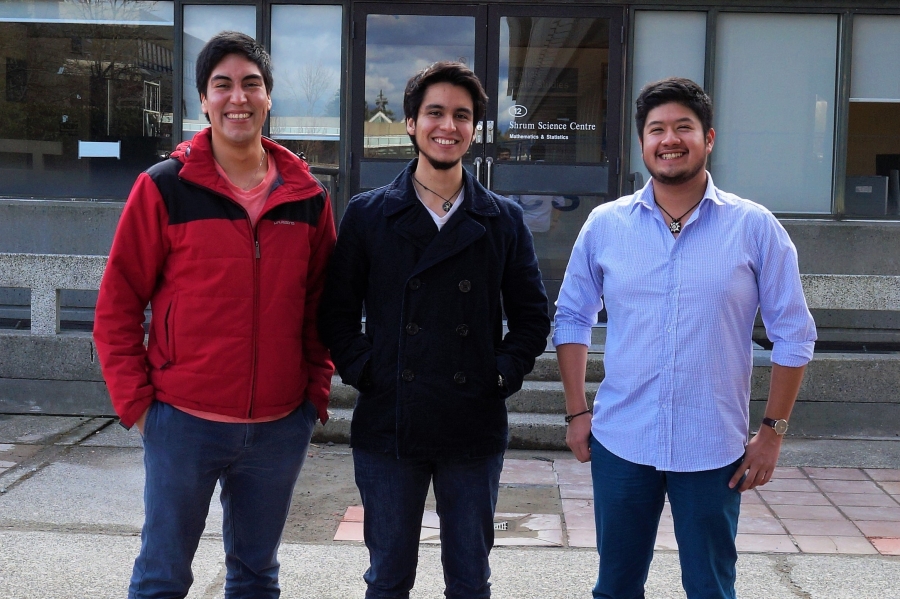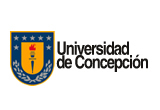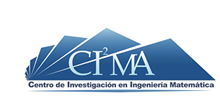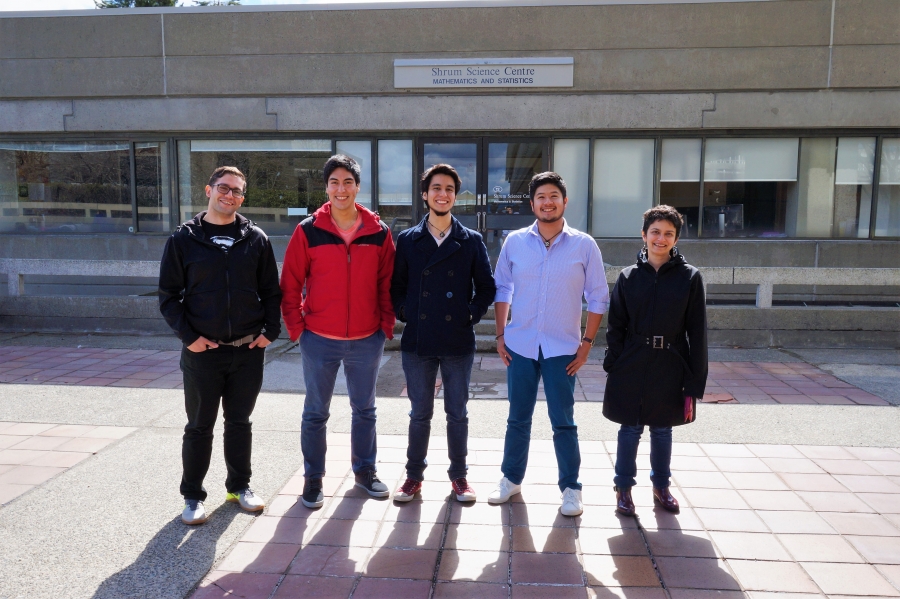News
Thanks to international contacts of CI²MA, it is the second time this experience happens

Frames and Numerical Approximation is the name of the research topic developed by Sebastián and Juan Manuel, under the supervision of the professor Ben Adcock. This study is related to mathematical models to improve the results in image processing, and that finally gave rise to the resolution of three conjectures initially proposed by Professor Adcock. Sebastián explained that “when we got there, professors handed us some papers to read about the subjects they were analyzing and we spent a week studying them. Then, each of us chose a professor to work with and picked up a problem to work on”. After this choice, Javier began to work with the researcher Dr. Weiran Sun in the subject The neutron transport and half space equations. “It was a new way of approaching a solution to the neutron transport equation, which is mainly used in nuclear reactors design. Currently, this process is by itself computationally very expensive, so the idea was to generate this new approach that is computationally more convenient. But that requires a lot of analysis and my work was precisely based on it: to establish the mathematical background and analysis that will be used in a future in order to study the numerical method”, he explained.
At the same time, Juan Manuel mentioned, “in our shared office, we interacted with Ph.D. and master students, and post doctorates, as well. We also permanently attended to seminars, so we had several instances to meet many people. Although we did not speak English well at begining, our advisors encouraged us to do it anyway, because they understood what we said and that allowed us to learn English better. The University is very cosmopolitan, there are many people whose mother tongue is not English, and so people there are used to it and very supportive. In fact, there were many more foreigner researchers than Canadians in the working groups. The students and professors considered our academic background equivalent to that of a master level, because their undergraduate programs are four-years long. That facilitated the contact with the professors at SFU, since they realized we have already studied some of the topics. We noticed we were at a very good level, because we heard comments from professors and the students in our workplace. They were amazed at how we worked at the same level as Ph.D. students. We are used to work hard, specially during the last three years of university, so it was not difficult for us to catch up with the pace of research”, he said.
Sebastián explained that “here at UdeC, we should have more instances to make a presentation in front of other students, because it is very useful” and Juan Manuel complements that “Professor Adcock met all of us, regardless of our academic level (graduate, master, PhD or postdoc). In addition, we all participated in group meetings, where each one of us explained what we were working on. That helped me a lot to practice English, because we had to explain to our peers. It is a positive practice because peers think about our work and they give us ideas about how we can make progress. This also motivated us to keep working, since nobody attends to those meetings without anything to show. In theoretical research, professors give many responsibilities to the students, so we have to study a lot on our own. This is good because we can see how is work life after graduate, since we want continue in the Academy”, Cárdenas commented. In addition, Sebastián confessed that when he arrived at SFU “I had no notion of how research was done in Mathematics and felt that I adapted quickly and could work well. As the days passed, we realized that we had a very good academic level thanks to Universidad de Concepción, then there was no reason to envy students from SFU”.
In that aspect, Professor Ben Adcock, who supervised Juan Manuel and Sebastián, said that “they both worked very hard and made important progress in the problems assigned to them, both of them showed a great academic level interacting with the students of my research group and held several exhibitions of about 15 to 20 minutes each, during these meetings. I was impressed how well they did, since it was something new for them and also in a different language”.
Coincident with this analysis, but referring to his specific collaboration with Javier, his colleague Weiran Sun stated that “Javier presents the skills of a second year doctoral student, since he naturally adapts himself to the academic and research environment, performing calculations similar to those in the papers that he studies. He is patient and strives on details of his analysis. Because of this all, I made it very clear that he would be very welcome if he decide to apply for the doctorate program here at SFU”. Regarding this, Javier explains that he returned to Concepción with a very positive feeling: “I feel like I took advantage of the two months very well, I did everything I could do. I had weekly meetings with Professor Sun on Mondays, although she was always available in her office to solve any doubts. Thus, step-by-step, we were looking over the progress of the investigation and the available options to solve each of the problems. It was a lot of personal work in my case. It remained to prove a result that is quite difficult and, therefore, it will take us a while to get there. It is something that I plan to work later on and that will open other expectations to continue the research”, said the student who is doing his undergraduate thesis under the supervision of Professor Gabriel Gatica.
This is the second time that students of this UdeC undergraduate program have the possibility to live this experience. Before, Sebastián Domínguez and Ernesto Cáceres, currently doctoral students in SFU and in Brown University (United States), respectively, had the same opportunity during 2014, thanks to a first collaboration agreement between researchers Nigam (SFU) and Gatica (UdeC). In this regard, Gatica pointed out that “it is a great pride and satisfaction to have helped to manage these kind of initiatives that certainly contribute in a very significant way to strength the academic training of our undergraduate students. For the visit of Sebastian and Ernesto we obtained a bipartite financial support between SFU and UdeC. That first visit was extremely successful for our students and for SFU. This is why, on this second occasion, almost a 100% of the internship was funded by SFU. In addition, UdeC International Relations Direction funded an English course for Javier, Juan Manuel and Sebastián before traveling to Canada. I am very happy about it, and I dare to say that this experience will continue in the future".


